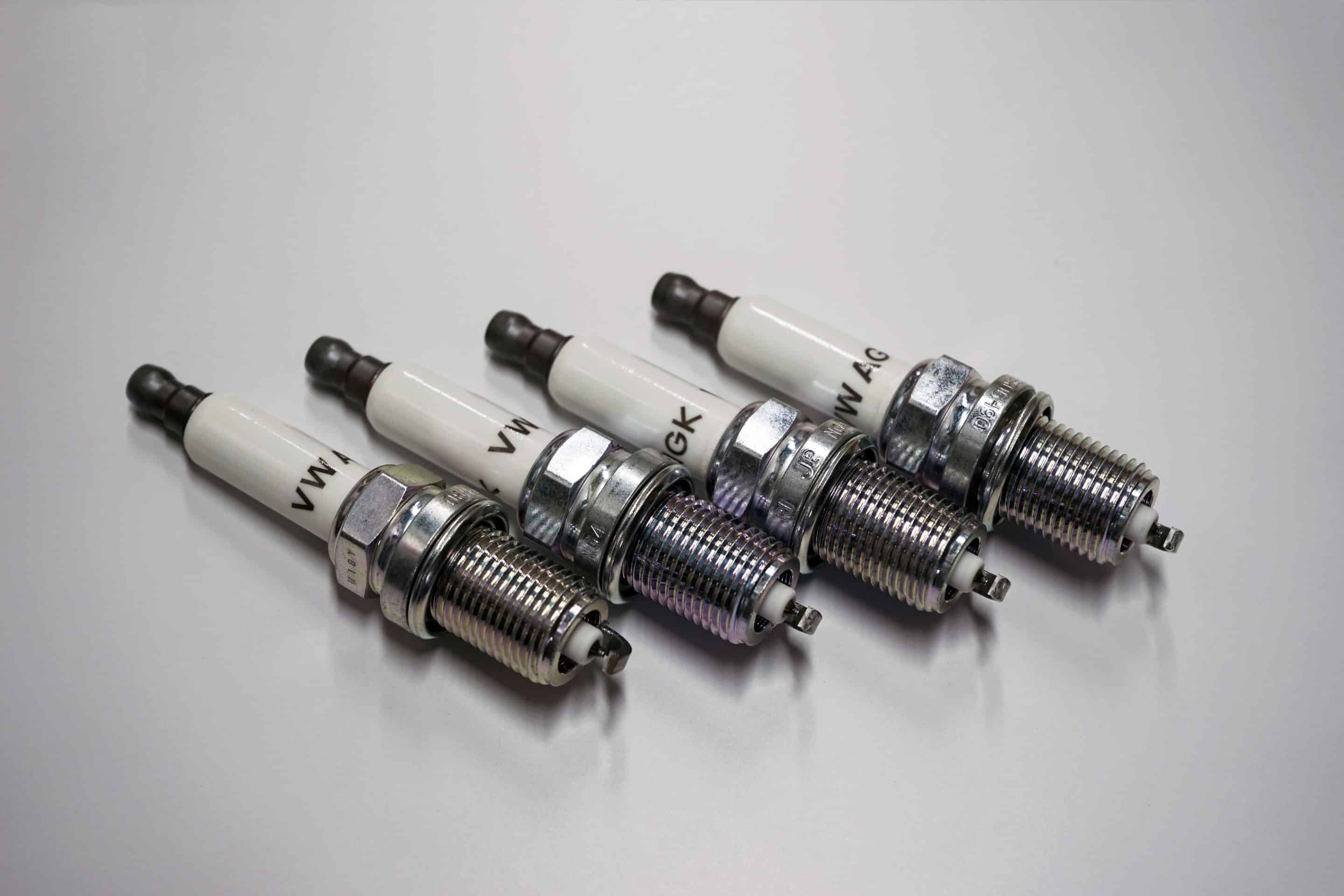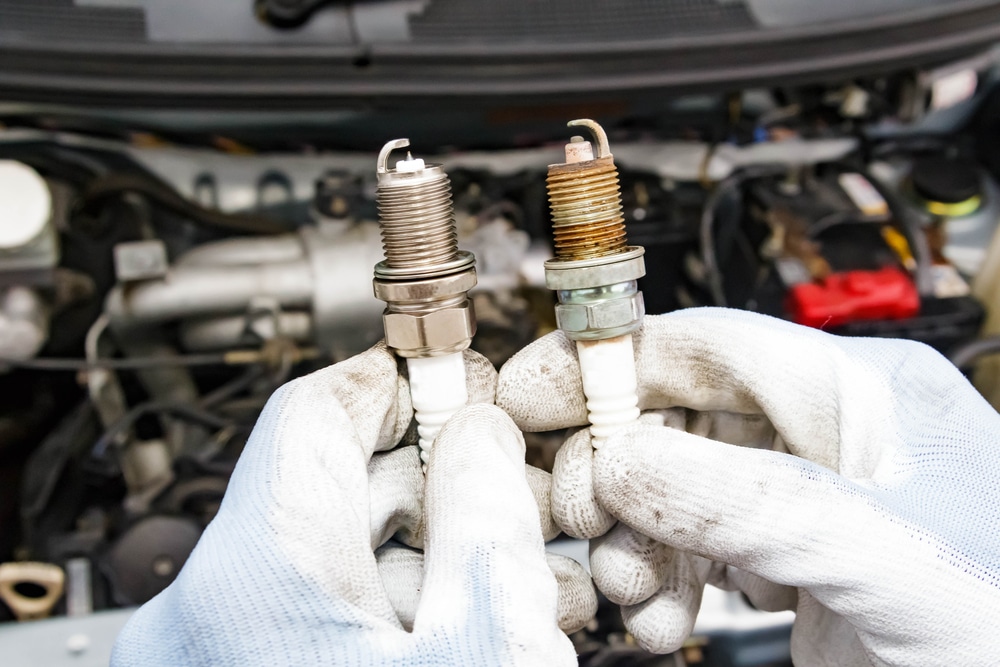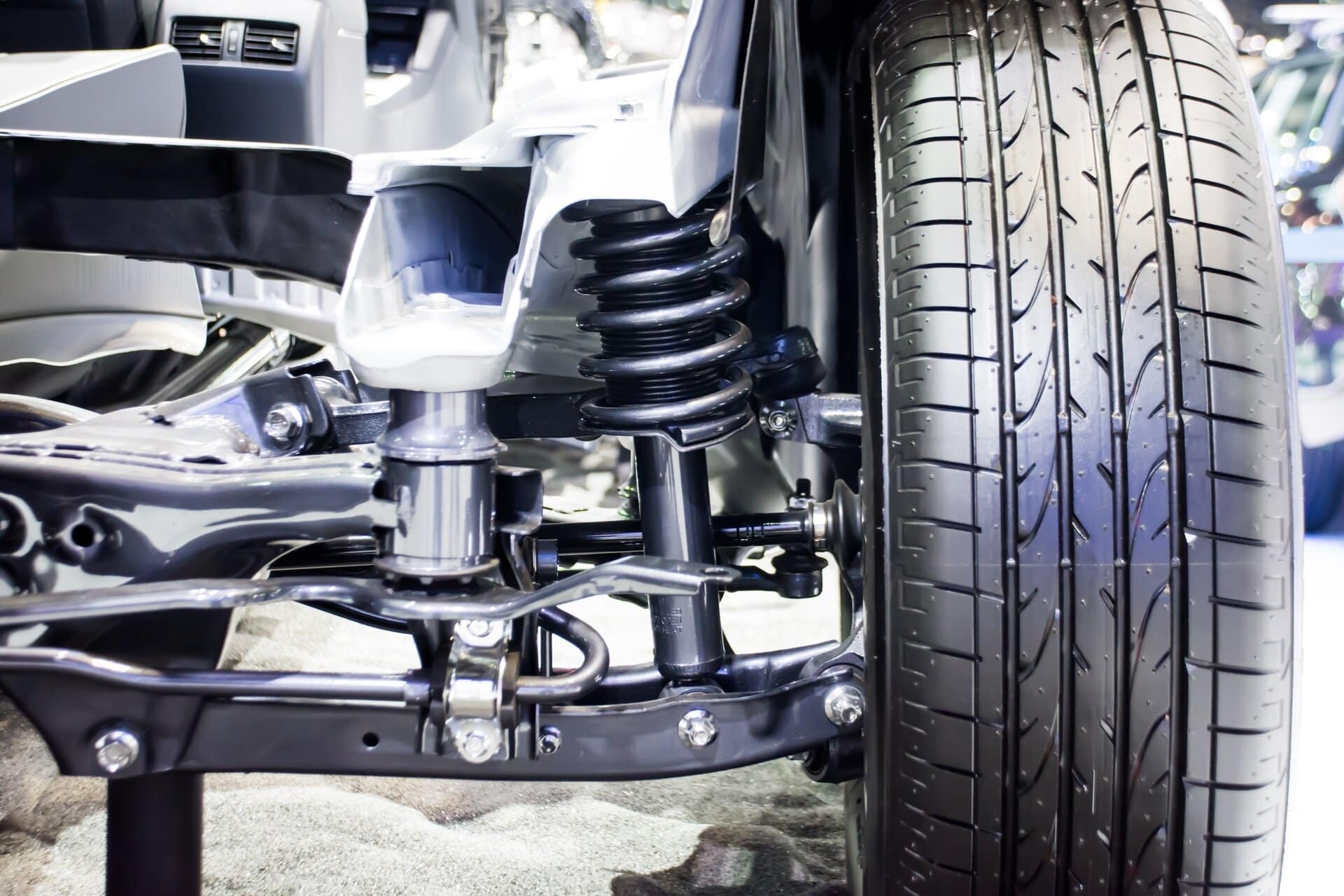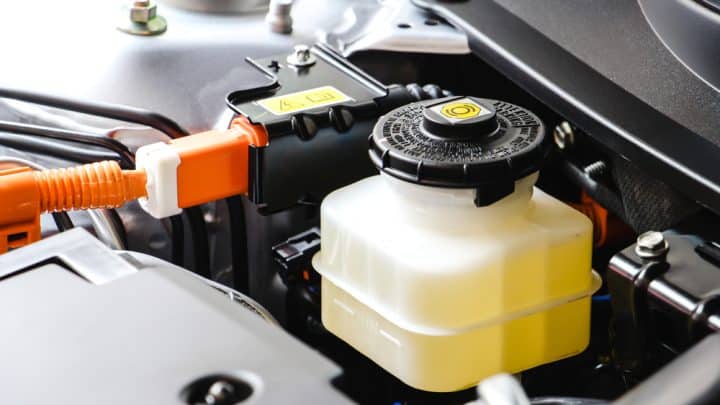Volkswagen Spark Plugs
Want to maintain your Volkswagen at its best? Then, knowing if and when your spark plugs need replacing is crucial.
Spark plugs, though small, play a substantial role in triggering the combustion of the air-fuel concoction inside your Volkswagen’s cylinders.
But, spark plugs can degrade over time because of a variety of factors, such as –
- Mileage
- Driving circumstances
- Wear and tear
Identifying when your Volkswagen’s spark plugs might need changing is vital to keep your VW in peak condition. You’ll get improved performance and fuel economy.
Our experts have compiled this comprehensive guide to delve into common indicators, offer handy upkeep tips, and help you know when your VW’s spark plugs require a change.

The Role of Spark Plugs in Your Volkswagen
If you’re curious about spark plugs and their function in your Volkswagen, you’re in good company.
At Fitch Autos, we’re regularly asked, “What do spark plugs do?”.
The spark plugs in your Volkswagen are an integral part of the combustion process inside your VW’s engine. They initiate the ignition of the air-fuel mixture, generating controlled bursts that propel the engine, allowing you to drive your vehicle.
Our Volkswagen experts have years of experience working with all models and can ensure your VW spark plugs remain in top condition.
How Frequently Should Volkswagen Spark Plugs be Replaced?

So how often should you change your spark plugs? It all depends on a few factors, such as mileage, your vehicle’s age, and the kind of spark plugs your Volkswagen utilises.
At Fitch Autos, we advise replacing your spark plugs approximately every 30,000 to 50,000 miles, or every 3 to 5 years, subject to whichever comes first.
However, this could differ based on your VW’s year and model.
Always consult your Volkswagen owner’s manual or get in touch with a specialist, like the team here at Fitch Autos, for guidance.
Another aspect that affects the replacement frequency is the type of spark plugs used on your VW.
Traditional copper spark plugs require more regular replacements, while iridium or platinum spark plugs can last up to 100,000 miles.
This is why we recommend routine servicing by a VW specialist to determine when your car’s spark plugs should be changed.
Need help figuring this out? Call our team today; we’re here to help you.
Telltale Signs that Your Volkswagen Spark Plugs May Need Replacing Here are the main symptoms your Volkswagen’s spark plugs need changing:
- Repeated misfires – Worn-out spark plugs can cause your VW engine to miss a beat and emit a popping noise during acceleration.
- Decreased performance – You might notice a dip in power or slow acceleration, suggesting your Volkswagen needs new spark plugs.
- Decreased fuel economy – Degraded or faulty spark plugs can reduce fuel efficiency, causing your VW to consume more fuel than necessary.
- Rough idling – Your VW engine might feel unsteady and emit irregular vibrations.
- Difficulty in starting the engine – This issue tends to happen more in cold weather. It’s a sign that your vehicle might need a spark plug replacement.
Noticing any of these problems? Don’t leave them to get any worse. Call Fitch Autos today and let our Volkswagen specialists solve your problem.
Are there Specific Dashboard Warning Lights or Error Messages for Spark Plug Problems?
Modern Volkswagen models usually have dashboard warning lights and error messages to indicate problems with your spark plugs.
One of the most common warning signs is the “Engine Malfunction” light, which pops up when a fault is detected in your vehicle’s ignition system, which could include spark plug issues. This warning light serves as a general indicator of engine-related problems. It’s not something you want to ignore; it requires immediate attention.
Additionally, some VW models might display a “Check Engine” light, which points to a potential fault within the engine control system.
Spark plug problems can affect engine performance and emissions; this light may illuminate if there are misfires or other related problems.
If one of these common warning lights shows on your VW, we suggest having your vehicle inspected by a Volkswagen expert. Our experts can diagnose and address any potential spark plug problems during the first fix.
Confused about a warning message? Contact Fitch Autos today for a reliable solution.
Can I Visually Check the Spark Plugs in My Volkswagen?
To visually check your Volkswagen’s spark plugs, you can follow these steps.
- Ensure your engine is cool before starting any inspection.
- Open your car’s bonnet and locate the engine bay, usually located at the front of your vehicle.
- Locate the spark plug wires or ignition coils. This will depend on your specific Volkswagen model. These are generally connected to the top of the engine and lead to the spark plugs.
- Carefully disconnect the wires or coils by gently pulling them off the spark plugs
- Grab a ratchet and spark plug socket and remove each spark plug one at a time.
- Assess the condition of each spark plug, looking for signs of wear, such as a worn electrode or excessive deposits. The electrode should have a clean, smooth appearance. If you can see oil or carbon deposits, it might need further inspection. Also, look for signs of damage, such as cracks or chips on the electrode or the ceramic insulator. We recommend replacing your VW’s spark plugs if you spot any severe wear, deposits, or damage.
- Reinstall your spark plugs, ensuring they are tightened to the manufacturer’s specifications.
- Reconnect the spark plug wires or coils, ensuring they are securely attached.
By following these steps, you can visually inspect your VW’s spark plugs, assessing their condition. But if this all sounds a bit tricky, let our Volkswagen specialists handle it, contact Fitch Autos today.

Potential causes of spark plug wear and failure in Volkswagens?
There are several reasons why your Volkswagen spark plugs might fail. Some of the most common are:
Regular wear and tear: Wear and tear can erode the spark plug electrodes, causing a drop in performance.
Oil leaks: Oil leaks may coat the spark plugs, reducing their capacity to ignite the fuel mixture efficiently.
Incorrect spark plug gap: An excessively wide or narrow gap can result in ineffective combustion and can cause your spark plugs to degrade prematurely.
Carbon accumulation: Carbon build-up on your spark plugs can lead to misfires and decreased performance.
Fuel additives: Fuel additives with aggressive chemicals can increase the speed of spark plug degradation. And it can even create spark plug damage.
To keep your VW performing efficiently, it needs regular servicing. This includes reviewing and replacing your spark plugs.
Can I do DIY tests to check the health of my Volkswagen spark plugs?
If you’re looking for a DIY test to figure out the health of your Volkswagen spark plugs, you’re in the right place, but you’re going to need specialised tools. There are two main tests.
Firstly…
The spark plug resistance test.
For this self-test, you’ll require a digital multimeter.
- Detach your spark plug wires and remove the spark plugs from your Volkswagen engine.
- Adjust your multimeter to the resistance or ohms setting.
- Link your multimeter leads to the metallic terminal at the end of the spark plug and the metal shell of the spark plug. If your spark plug is functioning correctly, it should show a resistance within the range the manufacturer indicates (see your vehicle’s handbook).
Secondly…
The spark plug gap check test.
- Using your spark plug gap tool, gauge the gap between the central and ground electrode of the spark plug.
- The correct gap should match the specifications detailed in your Volkswagen’s user guide. If the gap is excessively wide or narrow, it’ll affect the performance of your vehicle’s spark plugs.
By performing these DIY assessments on your Volkswagen spark plugs, you can assess the state of your vehicle’s spark plugs. Using the data from these tests, you can figure out if they need replacing or further inspection.
Don’t fancy doing a DIY test? Allow our VW specialists to take the reins; we’ll use our extensive experience, professional tools, and skillset to review the condition of your Volkswagen spark plugs and replace them if necessary.
Are there any Volkswagen-specific considerations or requirements for spark plug replacement?
If your Volkswagen needs a spark plug replacement, several factors must be considered.
Follow the torque instructions in your VW manual
You must stick to the torque specifications suggested by Volkswagen when fastening your spark plugs. This guarantees proper sealing while preventing cylinder head damage. The last thing you want to do is damage your spark plugs yourself.
Avoid using low-quality replacement parts
Volkswagen advises using spark plugs made for their vehicles to assure the best performance. Using authentic Volkswagen spark plugs will give you improved performance and longevity. Don’t be tempted to use aftermarket or incompatible spark plug brands, as they’ll offer sub-par quality and could cause further problems. This is why at Fitch Autos, we use Volkswagen-branded or high-grade equivalent components on your vehicle. You always get the quality needed to keep your VW in excellent condition with us.
Adhere to the advised replacement recommendations
Sticking to the manufacturer’s suggested spark plug replacement schedule ensures consistent ignition performance while helping you avoid any potential engine problems.
Advantages of swapping spark plugs in a Volkswagen
When it comes to swapping your Volkswagen’s spark plugs, your vehicle will gain several advantages:
- Reduced emissions
- Better fuel efficiency
- Smoother idling
- Improved engine performance
- It keeps serious engine issues at bay
New spark plugs aid in preventing damage to your engine while saving you money on future repair costs. That’s why staying on top of your vehicle’s servicing and maintenance is essential.
If your vehicle’s underperforming, you might need new spark plugs. Contact Fitch Autos today for a high-quality fix.
Seek professional assistance for spark plug replacement
At Fitch Autos, we will always recommend seeking professional assistance with your Volkswagen’s spark plug replacement for the following reasons:.
- If specific tools are required, such as spark plug sockets and extensions, then our experts have you covered. We have not only the correct equipment but also the experience, skill set and knowledge to work on all Volkswagen models.
- Further diagnostics may be needed to discover any underlying engine problems, like unstable idling or misfires.
Our seasoned Volkswagen experts can help maintain your vehicle in prime condition, solving any underlying issues that you might overlook by replacing your spark plugs yourself.
If you suspect your spark plugs need changing, or you’re uncertain and need assistance. Call Fitch Autos today and book your spark plug replacement.
Summary
Want to keep your Volkswagen performing optimally? If so, being aware of the signs that your Volkswagen’s spark plugs need replacing is crucial.
Look out for signs such as:
- Poor performance
- Difficulty starting the engine
- Rough idling
- Decrease in fuel efficiency
Notice any of these problems? Don’t ignore the issue; it’ll only worsen. Call Fitch Autos today to book your spark plug replacement.


